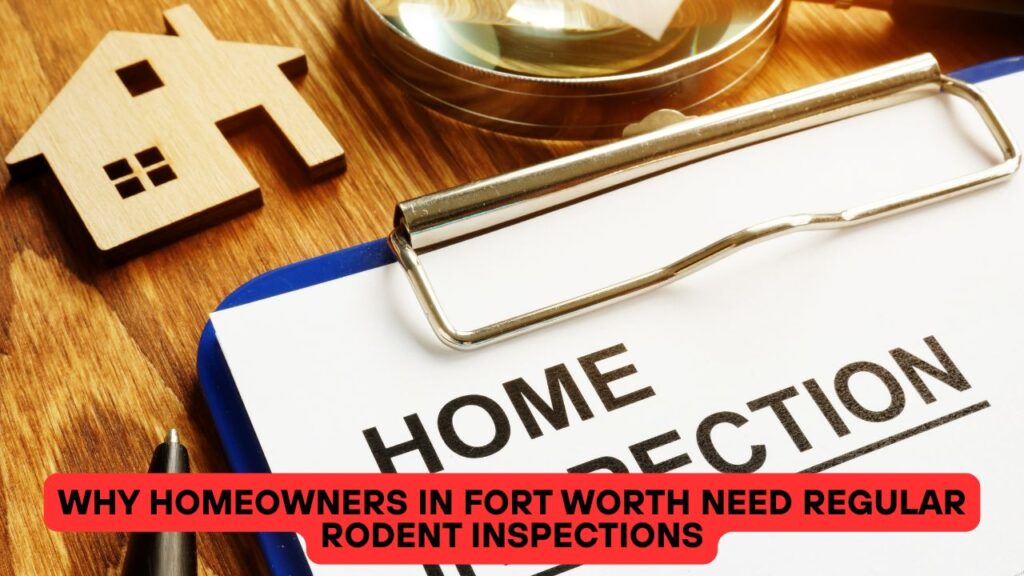Rodents are more than a nuisance, they pose significant risks to the structural integrity, safety, and livability of homes across Fort Worth. As urban and suburban development expands, the overlap between wildlife habitats and residential neighborhoods increases, driving rodents indoors in search of shelter and food. Many homeowners are unaware of rodent activity until severe damage or a health hazard occurs. That’s why proactive measures are critical. Regular inspections can identify early signs of infestation and prevent costly repairs. With effective rodent control Fort Worth services, property owners can safeguard their investment and maintain a healthier, safer living environment year-round.
Electrical Wiring Destruction: A Hidden Fire Hazard
One of the most dangerous consequences of a rodent infestation is its tendency to chew through electrical wiring. This habit stems from their ever-growing incisors, which need constant gnawing to stay manageable. Unfortunately, electrical wires hidden behind walls or in attics become the perfect target.
- Fire Risk: Exposed wires can spark and ignite surrounding insulation or wood framing. According to the National Fire Protection Association, rodents are responsible for a notable number of unexplained residential fires each year. Ignoring this threat can put lives at risk.
- Power Outages and Electrical Failures: Chewed wires can cause flickering lights, short circuits, or complete power failure in certain parts of the home. Homeowners may end up replacing expensive appliances or calling in electricians for major repairs.
- Insurance Complications: In some cases, insurance companies may deny claims related to rodent damage, especially if the problem could have been prevented through routine inspection or maintenance. This leaves homeowners footing the bill for thousands of dollars in repairs.
Insulation and Drywall Damage: Hidden Deterioration in Walls and Attics
Rodents are notorious for invading warm, sheltered areas like attics and crawl spaces, where they burrow into insulation and nest within walls. Over time, their presence can destroy these essential materials and degrade a home’s energy efficiency.
- Compromised Insulation: Rodents often tear apart insulation to create nests, leaving gaping holes that reduce its effectiveness. Damaged insulation causes heat loss in winter and cooling inefficiency in summer, leading to increased energy bills.
- Contaminated Building Materials: Rodent urine and droppings can seep into drywall, insulation, and even structural framing, posing both health risks and extensive clean-up costs. The longer the infestation goes undetected, the more widespread the contamination becomes.
- Mold and Odor Problems: Damp nesting materials combined with droppings can lead to mold growth, which damages drywall and releases harmful spores into the air. Additionally, rodent infestations often bring foul odors that permeate through walls and ceilings.
HVAC System Infiltration: A Breeding Ground for Rodents
Many homeowners overlook their HVAC system as a potential entry and nesting point for rodents. However, ductwork, vents, and air handler units offer easy access and hidden shelter, especially in poorly maintained systems.
- Blocked Air Ducts: Rodent nesting inside ductwork can obstruct airflow, reducing the efficiency of the entire HVAC system. This can cause uneven heating and cooling or lead to mechanical strain on the equipment.
- Air Quality Issues: Rodents bring allergens, bacteria, and parasites with them. When they inhabit HVAC ducts, their waste circulates through the air system, posing respiratory hazards for the household, especially children and those with asthma.
- Costly System Damage: Gnawed wires and chewed insulation around HVAC components can result in major damage that requires professional servicing or even replacement of system parts. Regular rodent inspections can help identify signs of early infiltration and prevent these expenses.
Foundation and Crawl Space Issues: Threats Below the Surface
Rodents, particularly rats and moles, are skilled diggers that often enter homes through crawl spaces or beneath the foundation. Their underground activity can weaken the very base on which a house stands.
- Burrowed Tunnels: Rodents may dig extensive tunnels under a home, disturbing the soil and undermining foundation stability. Over time, this can result in settling, cracking, or uneven flooring.
- Water Intrusion: Displaced soil and damaged vapor barriers allow water to accumulate in crawl spaces, which not only fosters mold growth but can also compromise structural elements like joists and beams.
- Pest Highways: Rodent burrows beneath a foundation can serve as a pathway for other pests like insects and snakes, turning a rodent problem into a multi-species infestation. This makes it even more essential to conduct thorough inspections and treat entry points.
Conclusion
For homeowners in Fort Worth, rodent issues can escalate rapidly if left unchecked. The damage they cause, whether it’s chewed wiring, ruined insulation, contaminated HVAC systems, or weakened foundations, comes with both financial and safety implications. Routine inspections are the most effective way to spot early warning signs and implement control measures before major issues arise. Partnering with a local rodent control provider ensures that homes are regularly monitored by professionals who understand the unique challenges of the region. By investing in proactive rodent inspections, homeowners protect their property value, maintain indoor air quality, and create a safer environment for their families.

